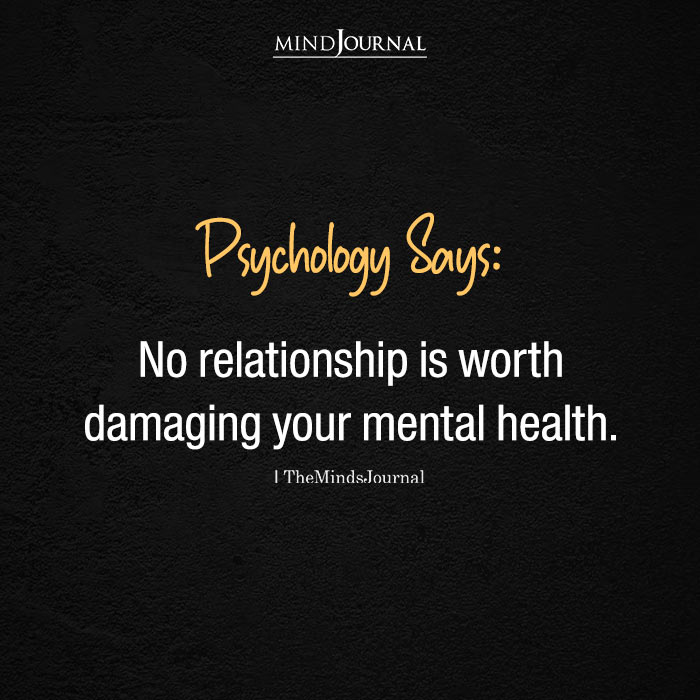Have you ever wondered if there’s a hidden key to unlocking deeper understanding and cooperation in your relationship? What if there was a subtle yet powerful tool that could revolutionize your relationship? Brace yourself for a transformative exploration of reverse psychology in a relationship that will leave you enlightened and inspired.
Getting what you want without asking directly
Relationships are an intricate dance of emotions, communication, and understanding. In the quest for harmony, couples often explore different strategies to navigate challenges and foster growth.
One such technique is reverse psychology, a subtle but powerful tool that can create positive shifts in a relationship.
Reverse psychology in a relationship is one of the most effective ways to get what you want from your partner without not directly asking for it but rather implying the opposite. This is a psychological persuasion technique that can work wonders in relationships.
Reverse psychology can be a valuable tool in a relationship if used wisely and respectfully. However, it’s important to note that using reverse psychology in marriage or relationship should not be used to manipulate or control your partner.
It should be used as a way to break through communication barriers and find resolutions to conflicts.
Related: How To Win Your Ex Back For Good (Using Reverse Psychology)
What does reverse psychology mean?
So exactly what does reverse psychology mean? It is a psychological technique that involves suggesting the opposite of what you desire, in order to influence someone’s behavior or actions indirectly.
By appealing to the natural human inclination to rebel against directives, it aims to indirectly influence decision-making aligned with the desired outcome.
It’s a method of persuasion where you encourage someone to do the opposite of what you want them to do. The idea is that by presenting your argument in a way that challenges their beliefs or ideas, you can spark their interest and encourage them to engage with you on a deeper level.
In a relationship, using reverse psychology can be a way to break through the communication barrier and find resolutions to conflicts. It can also be a way to encourage positive behavior and inspire your partner to think creatively.
However, it’s important to use reverse psychology wisely and not as a way to control your partner.

Why reverse psychology works
Reverse psychology works because it activates our natural tendency to do the opposite of what we’re told. When you tell your partner not to do something, it piques their curiosity and interest. Reverse psychology preys on your partner’s rebellious and independent streak.
When someone feels like they are being challenged or presented with a different perspective, they may be more inclined to engage in a conversation or activity. This can lead to a deeper level of communication and understanding in a relationship.
Reverse psychology can also be effective in encouraging positive behavior. When someone feels like they are being given a choice or that their autonomy is being respected, they may be more motivated to act in a positive way. This can lead to a more positive and fulfilling relationship.
However, relationship experts warn that overusing reverse psychology can damage trust within a relationship if your partner feels you are being manipulative rather than considerate. So make sure to use it sparingly and consciously.
Now that we know what does reverse psychology mean and why it is effective, let’s find out how you can use it in your relationships.
Related: How To Keep Control Of Your Emotions and Save Your Relationship
How to use reverse psychology in a relationship
Using reverse psychology in a relationship can be a delicate balancing act. Here are some tips for using reverse psychology in marriage or a relationship:
1. Challenge your partner’s beliefs or ideas
One way to use reverse psychology in a relationship is to challenge your partner’s beliefs or ideas. This can be an effective way to get them to see things from your perspective.
For example, if your partner is resistant to trying a new restaurant, you could say something like, “Okay, I guess we’ll just stick with our usual spot.” This may encourage them to reconsider and be more open to trying something new.
2. Offer them a choice that leads to the desired outcome
Another way to use reverse psychology in a relationship is to offer your partner a choice that leads to the desired outcome.
For example, if you want your partner to spend more time with you, you could say something like, “I know you’re busy, but if you don’t want to spend time with me, that’s fine.” This may encourage them to prioritize spending time with you.
3. Use negative language
Using negative language can be another way to use reverse psychology in marriage or relationship. For example, if you want your partner to clean up after themselves more often, you could say something like, “I don’t mind doing all the cleaning myself.”
This may encourage your partner to realize that their behavior is affecting you and to start cleaning up after themselves more often.
4. Be respectful and thoughtful
It’s important to use reverse psychology in a respectful and thoughtful way. Make sure that your partner is comfortable with this technique and that it’s not causing any harm to the relationship.
It’s also important to be honest and communicate openly with your partner about your thoughts and feelings.
5. Use it sparingly
Finally, it’s important to use reverse psychology in a relationship sparingly. Using this technique too often can be seen as manipulative and can erode trust in the relationship.
It’s important to use reverse psychology only when necessary and to make sure that it’s not causing any harm to the relationship.
Related: Research Proves The Most Successful Relationships Come Down to 3 Basic Traits
When to use reverse psychology in a relationship
Knowing what does reverse psychology mean is not enough, it is also important to know when to use it. Using reverse psychology in a relationship can be effective in some situations, but it’s important to use it wisely.
Here are some situations where using reverse psychology may be appropriate:
1. When you’re stuck in a communication rut
If you and your partner are having trouble communicating, using reverse psychology can be a way to navigate through the communication issues.
By presenting your argument in a different way, you can challenge their thoughts and opinions and encourage them to understand your point of view.
2. When you’re trying to encourage positive behavior
If your partner is engaging in negative behavior, using reverse psychology can be a way to encourage positive behavior.
By using reverse psychology, you can help them develop new ideas and beliefs and motivate them to see the benefits of changing their behavior.
3. When you’re trying to inspire your partner
If your partner is feeling stuck or uninspired, using reverse psychology can be a way to inspire them. This can encourage them to think outside the box and come up with creative solutions to their problems.
Related: Failed Relationships Come Down To One Basic Trait: According To Studies
Advantages of reverse psychology in a relationship
Here are some of the most common benefits of using reverse psychology in marriage or relationship:
1. Promotes cooperation
By suggesting an alternative course of action or subtly highlighting the benefits of a specific choice, you encourage your partner to consider your perspective without feeling coerced.
2. Effective in resolving conflicts
When you’re in a relationship, sometimes, it can be difficult to get your partner to see things from your perspective. Using reverse psychology can be a way to improve communication and find a resolution.
When employed with care and sensitivity, reverse psychology can open up channels of communication that might otherwise be blocked.
3. Encourages independence
By using reverse psychology, you empower your partner to make their own decisions and assert their autonomy. It creates an environment where both individuals feel respected and have the freedom to express their individuality.
4. Sparks interest and intrigue
Reverse psychology can add an element of mystery and excitement to a relationship. It creates a dynamic where both partners are engaged in deciphering hidden intentions and motives, making the journey together more intriguing and stimulating.

Disadvantages of reverse psychology in a relationship
Using reverse psychology can lead to certain issues and challenges when not used with care and sensitivity, such as –
1. It can be manipulative
When you’re trying to get your partner to do something, even if it’s for their own good, it can feel like you’re trying to control them. This can be a slippery slope and can lead to feelings of resentment and mistrust.
2. It can create a power imbalance
When you’re trying to get your partner to do something, you’re essentially putting yourself in a position of power. This can be a dangerous dynamic.
3. It can be disrespectful
Using reverse psychology can feel like you’re not respecting their autonomy. This can indicate that you do not respect your partner’s decisions and opinions and want things to be your way.
Related: How To Keep Your Man Happy: 10 Things You Can Do
Examples of reverse psychology in relationships
Here are some examples of how to use reverse psychology in a relationship:
1. When you want your partner to initiate date night, say “We don’t have to go out tonight if you don’t want to.” They’ll be more likely to suggest going on a date. This is one of the simplest examples of reverse psychology in relationships.
2. If you want your partner to help with household chores, say something like “The kitchen is a mess, but it can wait until tomorrow.” They may offer to clean up then.
3. When you want your partner to spend more quality time with you, act busy and say “Don’t let me distract you from what you were doing.” They’ll be more motivated to ask to spend time with you. This is one of the best examples of reverse psychology in relationships.
4. If you want your partner to be more romantic or affectionate, downplay its importance by saying “You don’t have to get me anything for our anniversary.” They may surprise you to prove otherwise.
Want more examples of reverse psychology in relationships? Read on.
5. When you want your partner to workout with you, say “I know you’re tired, so don’t worry about coming to the gym with me today.” They may insist on coming to prove they’re not too tired.
6. When you want your partner to do the dishes, you can say “Don’t worry about the dishes, I’ll do them.” This makes them more likely to offer to do the dishes.
As you can see, the tactic involves implying the opposite of what you actually want in an understated manner. The key is subtle hints rather than direct directives. Use this technique consciously and sparingly to motivate positive changes in your relationship.

Things to remember
Here are some things to keep in mind when incorporating reverse psychology in relationships –
1. Respect boundaries
It is essential to approach reverse psychology with respect and consideration for your partner’s boundaries. Make sure your intentions are rooted in love, trust, and a genuine desire for growth in the relationship.
2. Focus on empathy and understanding
Before utilizing reverse psychology, seek to understand your partner’s perspective and emotions. By demonstrating empathy and showing that you genuinely care about their needs, you create a foundation of trust that enhances the effectiveness of reverse psychology.
3. Use subtle hints and suggestions
Rather than making direct demands, employ subtle hints and suggestions that nudge your partner towards the desired outcome. This approach allows them to feel a sense of agency while also considering your perspective.
4. Be mindful of timing
Timing plays a crucial role in the success of reverse psychology. Choose the right moment when your partner is receptive and open to suggestions. Avoid using it during heated arguments or when emotions are running high.
5. Evaluate and adjust
Pay attention to the impact of reverse psychology on your relationship. Monitor the effectiveness of your approach and be open to adjusting your strategy if needed. Every relationship is unique, so what works for one couple may not work for another.
Related: If You Don’t Feel These 12 Things with Your Partner, It Isn’t Real, True Love
Takeaway
Reverse psychology in a relationship, when used thoughtfully and ethically, can be a valuable tool for nurturing a healthy and thriving relationship. By employing subtle influence and respect for your partner’s autonomy, you create a dynamic where both individuals feel heard, understood, and empowered.
Remember, communication and understanding are key, and reverse psychology can be a powerful addition to your relationship toolkit when applied with care and sensitivity.










Leave a Reply